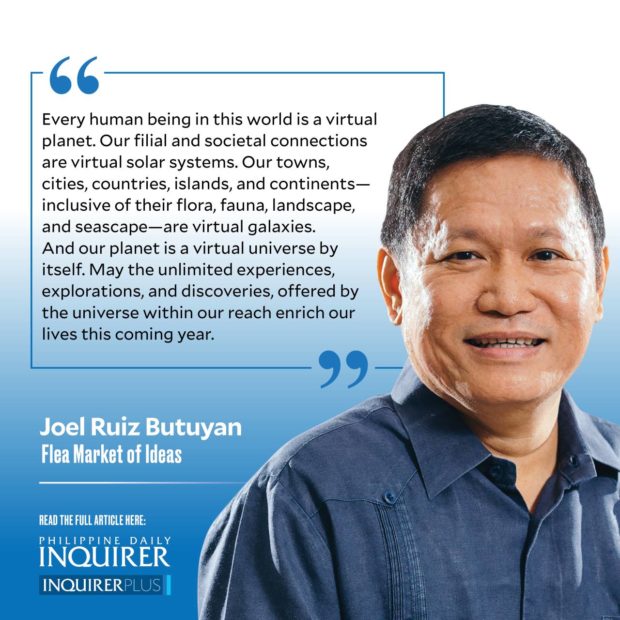A universe to explore and discover
One of the wonderful gifts received by our four-year-old son this Christmas season is a toy astronaut whose helmet marvelously projects stars and galaxies in a dark room. Our boy excitedly moves around and says, “Wow!” when the room gets illuminated with celestial bodies. I explain to him that the sun he sees on mornings is just one among the many stars in the sky. I hope that the momentary attention he gives me in response is an indication that the toy is helping feed his sense of wonder of the world.
In a church service I attended this month, the sermon started with an account of an online article with illustrative pictures showing what a tiny particle our planet is in the entire universe. The illustrations show how minuscule the Earth is in our eight-planets-one-sun solar system. The pictures show how our solar system is a small spot in the Milky Way galaxy, which has at least 100 billion stars, with each star having not less than one planet. The photos show what a tiny fleck our galaxy is when presented with the not less than 100 billion galaxies in the known universe.
Article continues after this advertisementAn article, “New Map of the Universe Displays Span of Entire Cosmos With Pinpoint Accuracy and Sweeping Beauty,” forwarded to me by a friend a few days ago, narrates that astronomers of the Johns Hopkins University have charted a new map of a portion of the universe that is so far known to humanity. The new map “charts a broad expanse of the universe, from the Milky Way to ‘the edge of what can be seen’” with “pinpoint accuracy and sweeping beauty.” The article says that “[t]he map visualizes a slice of the universe, or about 200,000 galaxies—each dot on the map is a galaxy and each galaxy contains billions of stars and planets. The Milky Way is simply one of these dots.”
These multiple reminders of the universe prompted me to read up more. Our sun is more than a million times the size of planet Earth. And the Milky Way galaxy, of which our solar system is part of, “is a huge city of stars, so big that even at the speed of light, it would take 100,000 years to travel across it.” Imagine how mind-boggling that is when we consider that one light-year, the distance light can travel in one Earth year, is 9.46 trillion kilometers. Imagine as well that the most distant galaxies that our scientists see, are “so far away that the light arriving from them on Earth today set out from the galaxies billions of years ago. So we see them not as they are today, but as they looked long before there was any life on Earth.”
But how big is the universe? The observable part of the universe, so far, is approximately 93 billion light-years in diameter, per scientific estimates. But some scientists say that the “unobservable universe must be hundreds of times larger.” Some even theorize that the universe is infinite.
Article continues after this advertisementConversations about how vast the universe is crop up oftentimes to remind us of how trivial our problems are, how vain our concern for fame is, and how frivolous our search for fortune is. This outward awareness of the vastness of the universe reminds us of how insignificant we are in the size and space of the cosmos system, and how tiny a blip in the life of the universe our time is in this world.
We will not see explorations and discoveries in faraway galaxies in our lifetime. But our outward view of the universe should prompt us to look inward and realize that there are analogous planets, solar systems, galaxies, and an entire universe that are well within our reach in our lifetimes. They hold countless possibilities of exploration and infinite opportunities for discovery. Unlike the uncertainties of the vast cosmos system, the universe within our reach plays host to unlimited realities, offers inexhaustible potentials for experiences, and unbounded opportunities for adventure.
Every human being in this world is a virtual planet. Our filial and societal connections are virtual solar systems. Our towns, cities, countries, islands, and continents—inclusive of their flora, fauna, landscape, and seascape—are virtual galaxies. And our planet is a virtual universe by itself. May the unlimited experiences, explorations, and discoveries, offered by the universe within our reach enrich our lives this coming year.
Happy New Year!
——————
Comments to fleamarketofideas@gmail.com

















